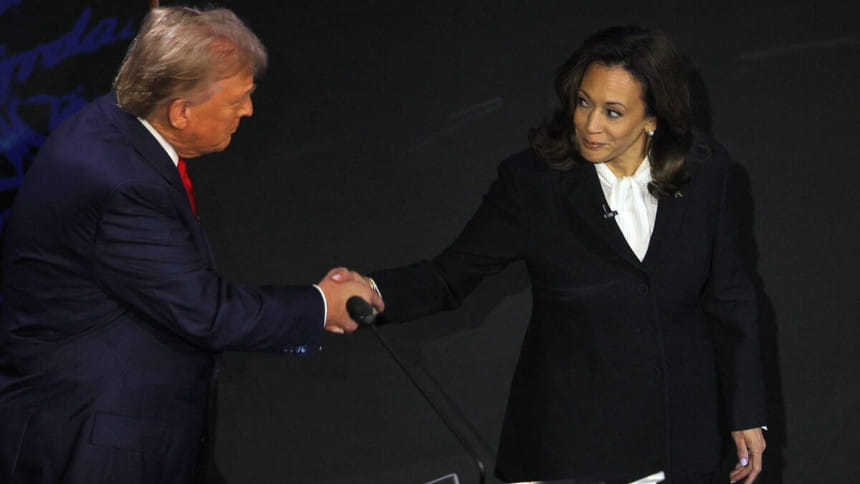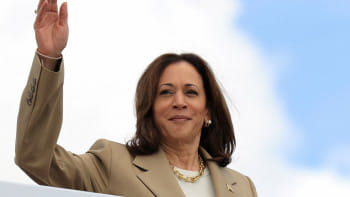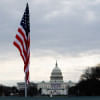US elections: Can dystopian darkness descend on Earth?

The US presidential and congressional elections on November 5 are approaching fast. Can anybody predict who will win the presidency? According to polls, it is a toss-up. New polling numbers by different organisations are appearing quickly, and the chances of Trump or Harris winning the election are on a roller coaster ride. Trump's illusory exposé of dog-eating illegal aliens during the last and only presidential debate did not make a dent in the support of his cultist followers.
According to FiveThirtyEight's polling average, Kamala Harris led Donald Trump by 2.5 percent nationally until the day of the presidential debate. The average lead increased to 2.8 percent on October 2 and dropped to 2.4 on October 13. These polls, with margins of error, are no guarantee of her election victory. We should not forget that Hillary Clinton garnered nearly three million more votes than Donald Trump in the 2016 election but could not win the presidency. In the United States, becoming president rests on securing a majority of 538 electoral college votes. Each state has an electoral college share, calculated by adding the number of House of Representative members—based on the state population—and two Senate members. To win the presidency, one must win 270 electoral college votes.
With a few exceptions, a candidate typically gains a state's allocated electoral college votes by winning a simple majority of general election votes in that state. Of the 50 states 43 are either Republican Party or Democratic Party strongholds, and one can easily estimate the electoral college votes each candidate will get from those 43 states. According to Newsweek, in late September, "RealClearPolling predicted 225 electoral votes locked in for Harris, compared to Trump's 219. Ninety-four votes across seven battleground states are considered a toss-up." Arizona, Georgia, Michigan, Nevada, North Carolina, Pennsylvania, and Wisconsin are the seven swing states where neither party has a stronghold. Different combinations of outcomes in those seven swing states generate several pathways to an electoral college victory for each candidate. Pennsylvania, with 19 electoral college votes, appears to be the most crucial in this election cycle.
The question is what sways voters in the swing states. The answer varies from state to state, depending on political leaning. According to the nonpartisan Pew Research Center's report on September 9, "Among Trump supporters, the economy (93 percent), immigration (82 percent) and violent crime (76 percent) are the leading issues. Just 18 percent of Trump supporters say racial and ethnic inequality is very important. And even fewer say climate change is very important (11 percent)." For Harris supporters, "issues such as health care (76 percent) and Supreme Court appointments (73 percent) are of top importance. Large majorities also cite the economy (68 percent) abortion (67 percent) as very important to their vote in the election."
It is difficult to predict how independent and party-line-crossing voters, who have yet to make up their minds, will embrace the two candidates' policies. Their policies differ significantly on many issues, including abortion, foreign affairs, global warming and climate change, health care, immigration, taxation, and international trade and tariffs.
Donald Trump plans to increase tariffs to a whopping 60 percent for Chinese imports and 10 percent worldwide, to expand his tax cut of 2017 for mega-corporations and wealthy individuals, to eliminate environmental-friendly regulations, to restrict all immigration drastically, to support draconian state laws against a woman's right to abortion, to weaken global alliances with non-autocratic nations, and to allow fossil fuel production on government land and sea.
By contrast, Kamala Harris plans to cut middle-class taxes significantly, increase taxes for mega-corporations and wealthy individuals, restore and codify abortion rights at the federal level, address the housing shortage for lower incomes by funding construction for new housing units and down-payment support for first-time homeowners, mitigate the causes of climate change through investments in renewable energy, and to expand health care subsidies for needy Americans under the Affordable Care Act.
Recently, an unpredictable factor has been added to the election statistics due to Israel's attack on Lebanon by exploding pagers and walkie-talkies on September 17 and 18, killing Hezbollah leader Nasrallah via an airstrike that dropped a two-thousand-pound bomb provided by the Biden-Harris administration, and finally launching an invasion into Lebanon on October 2. These could upset Arab American voters, nearly 91,000 in Michigan with 16 electoral college votes, which could cost Kamala Harris this crucial state. Many of these citizens had cast their votes for a third-party candidate Jill Stein as protest votes in the primary because Biden-Harris supported the Israeli invasion of Gaza. However, these voters are registered as Democrats. This situation could tilt the election in favour of Donald Trump.
The most alarming tendency of Donald Trump is to advocate for dismantling US institutions—what he dubs the Deep State—that act as guardrails against autocracy. Remember, he bragged about his endorsement by Victor Orban, the racist leader of Hungary, during the presidential debate. He exchanged letters with the North Korean dictator Kim Jong Un. He maintains a cozy relationship with Vladimir Putin and other extreme right-wing neo-Nazi leaders of Europe. His monarchist mindset is vivid in his appointment of kin to top governmental and Republican Party positions. These are alarming signs of his dynastic inclinations. His willingness to use executive power in bigoted ways manifested in his Muslim bans early in his term.
Pre-election polling indicates that the election is a toss-up—either candidate can win. If Trump wins, a radical transmogrification might follow. US democracy could be ruined because of Trump's willingness to remove two-century-old guardrails put into place by the US's founding fathers against dictatorship. The impact on the world could be catastrophic. Because the US is the biggest superpower in the world currently, its metamorphosis into an autocratic state could encourage extreme nationalism, racism, bigotry, and dictatorship in many regions of the globe. Dystopian darkness might descend on Earth.
Dr Mostofa Sarwar is professor emeritus at the University of New Orleans, former visiting professor and adjunct faculty at the University of Pennsylvania, and former dean and former vice-chancellor of Delgado Community College. He can be reached at [email protected].
Views expressed in this article are the author's own.
We welcome your contributions and analysis of global events, and responses to our articles. To submit articles to Geopolitical Insights, please send an email to [email protected].
Follow The Daily Star Opinion on Facebook for the latest opinions, commentaries and analyses by experts and professionals. To contribute your article or letter to The Daily Star Opinion, see our guidelines for submission.

 For all latest news, follow The Daily Star's Google News channel.
For all latest news, follow The Daily Star's Google News channel. 










Comments